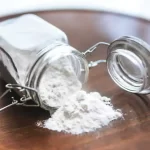Decaf Coffee Is Not Safe for Human Consumption, Health Advocacy Group Warns
The post Decaf Coffee Is Not Safe for Human Consumption, Health Advocacy Group Warns appeared first on Healthy Holistic Living.
Decaffeinated coffee often stands as the beverage of choice for those looking to enjoy the rich flavor of coffee without the stimulating effects of caffeine. Particularly appealing to caffeine-sensitive individuals, decaf allows coffee lovers to indulge in their favorite drink even late in the day without disturbing their sleep patterns. However, beneath the surface of this seemingly benign alternative, a significant health concern stirs controversy.
Recent discussions have cast a spotlight on the safety of decaffeinated coffee due to the use of methylene chloride, a chemical employed in one of the common decaffeination processes. Health advocacy groups and researchers are raising alarms about this compound, questioning its safety for human consumption and its continued approval by regulatory bodies. This growing concern challenges the notion of decaf coffee as a harmless option and calls consumers to question what truly goes into the decaffeination process.
What is Methylene Chloride?
Methylene chloride, also known as dichloromethane, is a colorless, volatile liquid with a mildly sweet aroma, primarily used in industrial applications. Despite its widespread use in paint stripping, pharmaceutical manufacturing, and metal cleaning, methylene chloride’s safety in various processes has come under scrutiny due to its toxic nature.
Industries have employed methylene chloride for decades due to its effectiveness as a solvent. Its applications range from the aforementioned paint stripping and pharmaceutical production to its use in paint remover manufacturing and degreasing tasks in metal industries. Its volatility makes it an excellent solvent that quickly evaporates from the materials it cleans, leaving little residue.
How Methylene Chloride is Used in Decaffeination
Decaffeination allows coffee enthusiasts to enjoy their favorite brew without the stimulant effects of caffeine. Among several methods available, the use of methylene chloride in the decaffeination process is particularly widespread due to its efficiency in caffeine extraction. However, the safety of this method has become a topic of intense debate.
The process begins with green coffee beans, which are steamed to open up their pores. Following this, producers treat the beans with methylene chloride, which acts as a solvent to dissolve and draw out the caffeine. After several hours, the beans undergo another round of steaming to remove the methylene chloride, ideally leaving behind only trace amounts that are below harmful levels. The beans are then dried and roasted, similar to regular coffee beans.
Regulations stipulate that methylene chloride residues in decaffeinated coffee must not exceed 10 parts per million (0.001%) to ensure safety. This limit is intended to prevent any significant health risks associated with the chemical’s ingestion.
Health Risks and Regulatory Designations
Major health organizations have classified methylene chloride as a carcinogen. The National Institutes of Health’s National Toxicology Program, the Environmental Protection Agency (EPA), and the World Health Organization all acknowledge the cancer risks associated with this chemical. Beyond its carcinogenic properties, methylene chloride can cause severe health issues, including liver toxicity, neurological effects at high exposures, and even death in extreme cases of acute exposure.
The recognition of these health hazards has led to increased regulations on methylene chloride use, especially in consumer products and environments that pose direct exposure risks to individuals. Despite these regulations, the use of methylene chloride in food processes, particularly in the decaffeination of coffee, remains a contentious issue due to the potential health implications.
Health Concerns Linked to Methylene Chloride
Despite the regulatory limits, the use of methylene chloride raises significant health concerns. Its classification as a carcinogen by prominent health organizations points to potential long-term risks, especially from chronic exposure, even at low levels. Studies have shown that methylene chloride can increase the risk of certain cancers, particularly in individuals with prolonged exposure.
Moreover, other health risks associated with methylene chloride include liver toxicity and potential neurological effects, which can manifest even at relatively low levels of exposure if it occurs regularly. These risks are compounded by concerns that not all decaffeination processes thoroughly remove the chemical, potentially leaving consumers exposed to higher than recommended levels.
The use of methylene chloride in decaffeinating coffee is a critical concern not just for consumer health but also for workers in coffee processing facilities, who may face higher exposure levels during the handling and processing phases.
Regulatory Actions and Industry Response
As concerns about the health impacts of methylene chloride continue to mount, regulatory agencies and the coffee industry have taken significant steps to address and mitigate these concerns. The regulatory landscape surrounding this chemical is evolving, as is the industry’s approach to safer decaffeination methods.
The Environmental Protection Agency (EPA) has taken a proactive stance against the risks posed by methylene chloride. Recognizing its carcinogenic potential and the health risks associated with its use, the EPA banned the sale of methylene chloride in paint strippers in 2019.
This move highlighted the serious concerns regarding acute exposure to the chemical. More recently, in 2023, the EPA proposed extending this ban to include its sale for most consumer uses and many industrial and commercial applications, though specific exemptions, including some food-related uses, remain under the purview of the Food and Drug Administration (FDA).
The FDA, for its part, maintains regulations concerning the use of methylene chloride as a solvent in the decaffeination of coffee. These regulations specify that methylene chloride residues must not exceed 10 parts per million in decaffeinated coffee, a standard intended to safeguard consumers from health risks.
However, despite these regulations, advocacy groups have raised concerns that the FDA’s oversight may not sufficiently protect the public, prompting petitions for more stringent controls or outright bans of the chemical in food processing.
Coffee Industry’s Response to Regulatory Changes
The coffee industry, including major players like Starbucks, has been closely monitoring these regulatory changes and consumer concerns. In response, some companies have begun exploring or adopting alternative decaffeination processes that do not involve methylene chloride. Starbucks, for instance, employs three primary methods for caffeine removal:
A direct solvent method, where a solvent other than methylene chloride may be used.
The Swiss Water Process, which relies on solubility and osmosis to remove caffeine without the use of chemical solvents.
The CO2 Process, where liquid carbon dioxide, under high pressure, extracts the caffeine.
These methods, particularly the Swiss Water Process and the CO2 Process, are gaining popularity as they eliminate the need for chemical solvents altogether, thereby addressing consumer concerns about chemical residues. Furthermore, they appeal to a growing segment of consumers seeking “clean label” products that are free from synthetic chemicals.
The industry’s shift toward these alternative methods reflects a broader trend of prioritizing consumer health and environmental sustainability, a move also seen in the gradual phasing out of methylene chloride by smaller coffee producers and specialty brands.
As regulatory bodies continue to review and update their policies and the coffee industry adapts to these changes, the landscape of decaffeinated coffee is set to evolve significantly. This ongoing process underscores the importance of staying informed and proactive about the substances used in food and beverage production.
Health Experts and Researcher’s Viewpoints
The debate over the use of methylene chloride in decaffeinated coffee has drawn commentary from a broad spectrum of experts, ranging from health professionals to industry researchers. Recent scientific studies have further illuminated the risks and realities of exposure to this chemical, influencing both public opinion and regulatory frameworks.
Health experts largely agree on the potential dangers posed by methylene chloride, particularly highlighting its carcinogenic properties. Dr. Maria Doa, a senior director of chemical policy at the Environmental Defense Fund, emphasizes that allowing methylene chloride in food processes overlooks critical research indicating its toxicity. Numerous toxicologists and public health researchers echo these concerns, advocating for stricter regulations or a complete ban on its use in food-related applications, given the chemical’s established health risks.
In contrast, some industry voices, like William Murray, President and CEO of the National Coffee Association, argue that the use of methylene chloride in decaffeination is safe when conducted within regulatory limits. Murray cites extensive independent scientific evidence suggesting that decaffeinated coffee, processed using methylene chloride, poses no significant risk to health and might even carry health benefits similar to regular coffee.
Recent Scientific Studies and Their Findings
Recent studies have focused on the levels of methylene chloride found in decaffeinated coffee and their implications for consumer health. One pivotal study analyzed methylene chloride residues in commercially available decaffeinated coffee brands and found that most samples remained well below the FDA’s limit of 10 parts per million. However, the same studies caution that even trace amounts can be concerning if consumed regularly over an extended period, particularly in vulnerable populations such as pregnant women and those with pre-existing health conditions.
Research has also explored the cumulative effect of methylene chloride exposure from multiple sources, including occupational exposure and ambient environmental levels. These studies suggest that when combined with exposure from coffee consumption, the overall risk may exceed previously understood thresholds, prompting calls for a reevaluation of acceptable exposure levels.
Additionally, advancements in understanding the biochemical impact of methylene chloride have shown that even “minute” quantities can have a disproportionate effect on cellular health over time. These insights come from genetic and molecular studies revealing how methylene chloride may influence gene expression and DNA integrity.
This body of expert opinions and recent research paints a complex picture of methylene chloride’s safety in decaffeinated coffee. The industry reassures the public of the chemical’s minimal risk within regulatory boundaries, but health experts and recent scientific findings suggest a more cautious approach might be warranted.
Safer Decaffeination Methods
For coffee lovers who wish to steer clear of methylene chloride, several safer decaffeination methods have gained prominence. These methods not only provide peace of mind but also maintain the integrity and flavor of the coffee without using potentially harmful chemicals.
Swiss Water Process
This method uses only water to decaffeinate coffee beans. Coffee beans are first soaked in hot water to dissolve the caffeine. The water is then passed through a charcoal filter, which captures caffeine molecules without removing the beans’ natural flavors. The same flavor-rich water is reintroduced to the beans to restore any flavors that were lost initially. This process is 100% chemical-free and certified organic, making it one of the safest and most popular methods among health-conscious consumers.
CO2 Process
The Carbon Dioxide Method utilizes liquid CO2 in place of chemical solvents. Under high pressure, CO2 acts as a solvent to extract caffeine from coffee beans, without the harmful effects associated with traditional chemical solvents. This method is highly efficient at removing caffeine while preserving the unique flavors of the coffee. It’s especially suitable for larger quantities of coffee and stands out for its environmental friendliness.
Direct Solvent-Free Method
Some newer techniques involve the use of natural solvents like ethyl acetate derived from fruits or sugars. These are considered safer than methylene chloride and are often labeled as “naturally decaffeinated” coffees. These methods are growing in popularity due to their minimal health risks and reduced environmental impact.
What to Look for When Purchasing Decaf Coffee
When shopping for decaffeinated coffee, consumers should pay close attention to labels and certifications that indicate safer processing methods:
Look for certifications: Certifications like USDA Organic or Rainforest Alliance Certified can indicate that a product meets stringent health and environmental standards. These certifications often require producers to avoid using hazardous chemicals, such as methylene chloride, in the production process.
Check the labeling: Products often explicitly state the method of decaffeination on the packaging. Look for terms like “Swiss Water Process,” “CO2 Process,” or “solvent-free” to ensure that the decaf coffee is free from methylene chloride.
Research the brand: Some coffee brands commit to sustainability and consumer health by choosing safer decaffeination processes as a standard practice. Conducting a bit of research on a brand’s practices can provide reassurance about the quality and safety of their decaf coffee.
Ask questions: If uncertain, don’t hesitate to contact the manufacturer for information on their decaffeination process. Many companies provide detailed information on their websites or customer service lines.
By choosing decaffeinated coffee that utilizes these safer methods and paying attention to labels and certifications, consumers can enjoy their favorite beverage without the risks associated with methylene chloride.
Safer Sips: The New Wave of Decaf Coffee
In light of the controversies and health concerns surrounding methylene chloride, the dialogue about decaffeinated coffee is more pertinent than ever. As consumers become increasingly aware of the chemicals involved in food processing, the demand for transparency and safer alternatives in the decaffeination of coffee has escalated. This awareness is driving significant changes within the coffee industry, prompting a shift toward methods that safeguard consumer health while maintaining the quality and integrity of the coffee.
The growing preference for decaffeination techniques such as the Swiss Water Process and the CO2 Process reflects a broader movement towards health-conscious consumption. These methods, which avoid harsh chemicals, not only align with consumer values but also enhance the appeal of decaffeinated coffee as a truly safe and enjoyable option at any time of day.
Ultimately, the conversation about decaffeinated coffee and methylene chloride is not just about beverage choice—it’s about consumer rights, health, and the ethical responsibilities of those who produce our food. By staying informed and choosing wisely, consumers have the power to influence industry practices and promote a healthier, more sustainable future.
The post Decaf Coffee Is Not Safe for Human Consumption, Health Advocacy Group Warns appeared first on Healthy Holistic Living.












